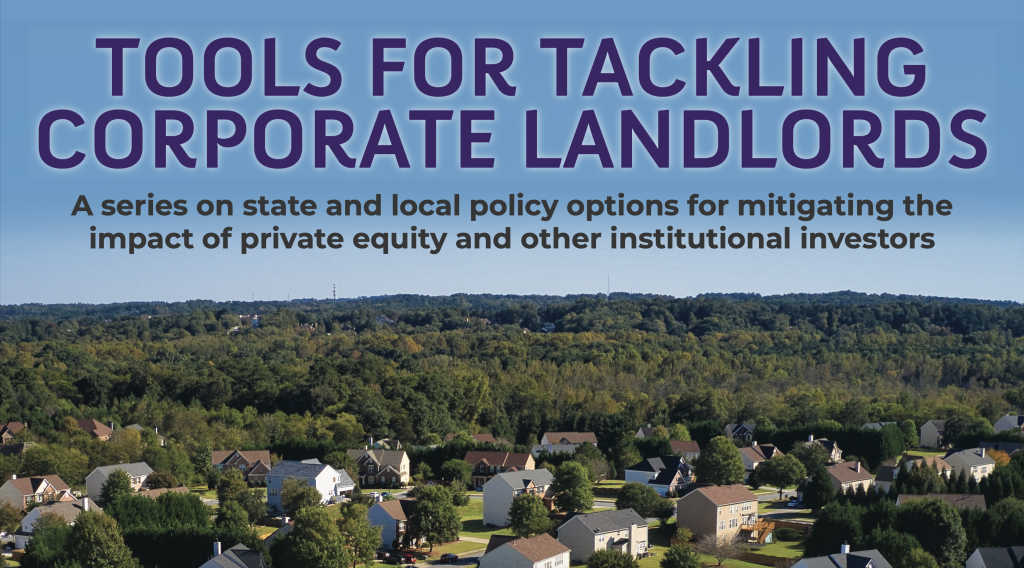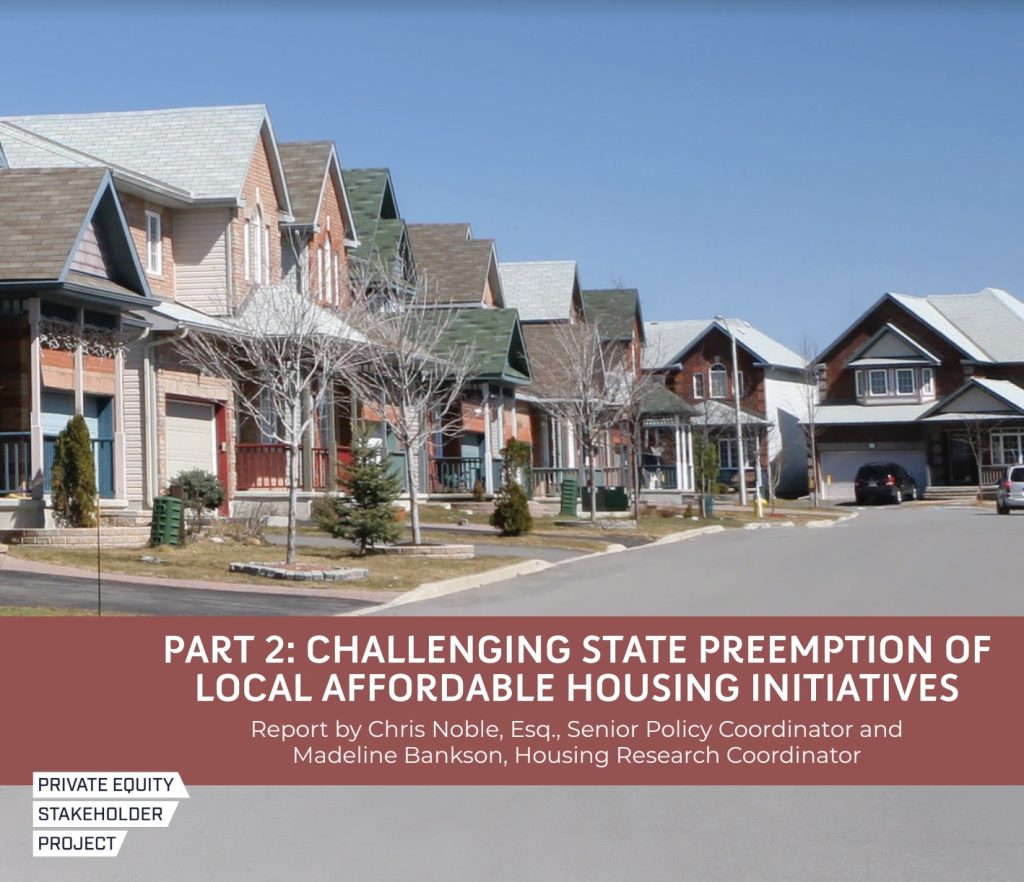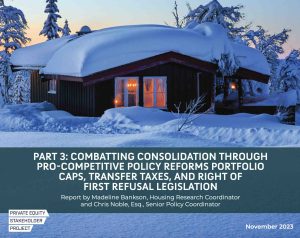This report series uplifts state and local policy options for mitigating the impact of private equity and other institutional investors on housing affordability and renters’ rights:
PART 1: Landlord Registries, Licensing, and Proactive Inspections
PART 2: Challenging State Preemption of Local Affordable Housing Initiatives
PART 3: Combatting Consolidation Through Pro-Competitive Policy Reforms
PART 4: 2024 PESP Housing Policy Primer
PART 1: Landlord Registries, Licensing, and Proactive Inspections examines the effectiveness of landlord registries, licensing, and proactive inspections in regulating corporate landlords. It emphasizes the need for increased transparency in identifying patterns of behavior across a landlord’s entire portfolio and highlights the potential for licensing requirements to proactively address widespread and recurring habitability issues and consolidation of ownership.
With at least 1.6 million housing units in the United States owned by private equity, it is clear that government intervention is needed to keep people in safe, affordable, and accessible housing. Although regulating corporate landlords can be difficult, this report showcases examples of successful past measures and underutilized legislative opportunities that can be deployed to mitigate the harmful effects of increased corporate ownership.
Read the first report here.
Part 2: Challenging State Preemption of Local Affordable Housing Initiatives explains how state preemption functions to thwart local efforts to protect individuals, tenants and prospective homebuyers alike, from corporate housing consolidation. The report highlights the following key points:
- State governments have moved to preempt local initiatives to combat the nation’s housing crises.
- Researchers found that efforts to protect citizens from pandemic related housing issues by local governments in states like California, Florida, and Illinois were stymied to a varying degree depending on the level of state preemption employed.
- Passing state legislation to abrogate state preemption of local issues like income non-discrimination, inclusionary zoning, and rent control is key to winning housing policy victories at the local level.
- To move policy at the state level, it is necessary to organize powerful, reliable constituencies that will compel politicians to make concessions on preemption and ultimately hold them accountable.
Among the policies highlighted in the report are:
- The Home Ownership Market Manipulation Act in North Carolina, which sought to place caps on the number of single family properties a single landlord can own in some areas;
- A Minnesota ban on rental property conversions, meant to stabilize the supply of housing and lower costs for consumers,
- The Corporate Landlord Accountability Act in California, which would prevent corporations from buying bundles of foreclosed, under-valuedproperties only to sell or rent them at inflated rates; and,
- The Stop Predatory Investing Act – introduced in the United States Senate by Senator Sherrod Brown – would prevent investors who own 50 or more single-family rental units from claiming interest or depreciation tax deductions on those units.
Part 4: 2024 PESP Housing Policy Primerconsolidates emerging policy solutions to address the increasing corporate domination of housing markets, particularly by private equity firms. The report offers a comprehensive overview of potential legislative and regulatory tools to mitigate these harms. While barriers such as state preemption, conservative legislative majorities, and well-funded landlord opposition persist, the report highlights successful measures that can be replicated at federal, state, and local levels to protect tenants and address housing affordability.
Starting in the years following the 2008 financial crisis, private equity and other larger investors have become increasingly active in the housing market. In addition to crowding first-time homebuyers out of the market, private equity and other corporate landlords pose threats to renters. Since they can gain market power in geographic areas with few other options for renters, they can charge high costs and offer minimal repair and upkeep. Notably in 2022, a Congressional subcommittee found that “renters in institutionally-owned single family rental homes often experience higher rent increases, inflated fees, and diminishing quality of housing over time.”
With over 1.6 million U.S. housing units owned by private equity, tenants face mounting instability, unaffordable rents, and deteriorating conditions as firms prioritize profits over people. The private equity business model—driven by the need to deliver high returns over relatively short timelines—leads to deferred maintenance, excessive fees, and regulatory evasion. Millions of Americans now live under this financialized housing model, which exacerbates the nation’s housing crisis.
As housing affordability and security remain major hurdles for Americans, this report underscores the need for swift and bold action. Policymakers at all levels of government have the tools to address corporate landlord abuses and ensure that housing is treated as a human right—not a commodity.
The full report is available here: pestakeholder.org/reports/2024-pesp-housing-policy-primer




